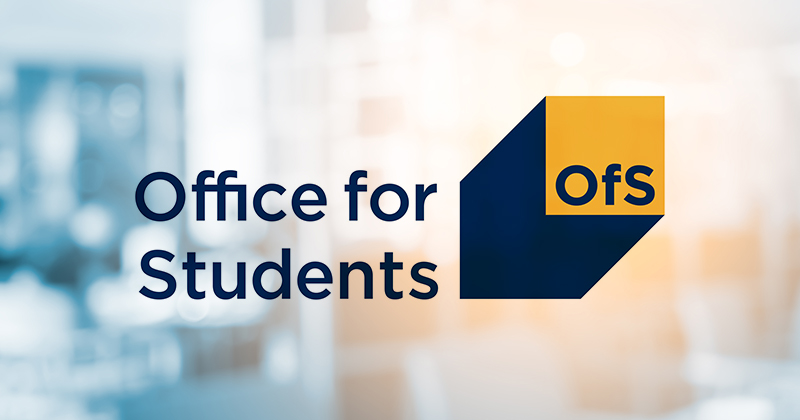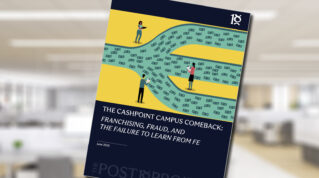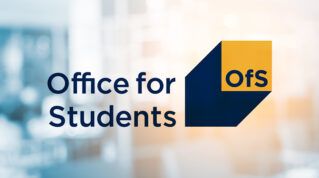Colleges and universities will be told that they have a “moral duty” to help raise standards in local schools as the HE regulator floats even more regulatory controls.
John Blake, the newly appointed director for fair access and participation at the Office for Students (OfS), will use his first major speech since taking on the role to make the case that higher education providers have a “moral duty” as “educational and civic institutions” to improve results for disadvantaged pupils locally.
Blake will be speaking at the OfS’ ‘next steps in access and participation’ event this afternoon where he will set out the regulator’s expectations to college and university representatives.
“If we are at all concerned with equality of opportunity in accessing higher education, we must be concerned with improving attainment much, much earlier in life,” he is expected to say.
‘Strategic engagement’ to be closely monitored
According to the Education Policy Institute, disadvantaged pupils are on average 18 months of learning behind their peers by the time they take their GCSEs.
“Universities and colleges have a moral duty to put their shoulder to the wheel of improving that wider community they sit within, and as both educational and civic institutions, improving attainment in our schools is an essential part of that work,” Blake will say today.
“We are asking providers to seek out strategic, enduring, mutually-beneficial partnerships with schools and with the third sector, all working together to contribute to this work.
“But we are expecting providers to pull their weight on pre-16 attainment, a challenge which affects us all.”

Encouraging “strategic engagement” with schools already features in OfS’ guidance on access and participation plans. OfS requires HE providers that wants to charge higher tuition fees to have an approved access and participation plan.
These documents, which are published, must contain targets and investment plans to, for example, increase participation in higher education from under-represented groups and reduce gaps in outcomes between white and black and disabled and non-disabled students.
When asked by FE Week whether the OfS will be using its regulatory powers to force college and universities to take improvement action with local schools, the regulator revealed that it will be doing so through its approval regime for access and participation plans.
Blake will say today: “We will be asking providers to review their current access and participation plan and for them to seek variations to ensure the full scale of their work on strategic school engagement, quality, and non-traditional pathways is being captured.
“If such work is not currently happening or is not appropriate, providers should seek to remedy that too, with new action beginning from September 2023.”
OfS will be inviting variation requests before the summer, FE Week understands.
The Association of Colleges chief executive David Hughes said that colleges “have decades of experience working closely with local schools to improve achievement and transition at 16” and agrees that “all parts of the education system should work together and have a moral duty to ensure that everyone who has the ability to benefit from higher education can do so”.
Hughes adds “We will continue to encourage OfS to take account of the different circumstances of the organisations they regulate in achieving our shared goals.”
Improve outcomes for disadvantaged students
In a second call to arms, Blake will tell the sector that they should be doing more to support HE students from disadvantaged backgrounds while they are at university or college rather than focussing solely on recruiting them.
“I have heard more often than I would like that students feel their providers fell over themselves to bring them into higher education, but interest in their needs trailed off the moment they were through the door,” he will say.
This follows the OfS’ mammoth series of consultations launched in January which take aim at “poor quality” courses by bringing in tough new outcome measures.
Responding to today’s speech by Blake, the higher and further education minister Michelle Donelan said: “It is a well-worn truth that opportunity has its roots in the early stages of education – which is why to truly champion widening access universities must work with schools and help ensure that disadvantaged pupils are not left behind their peers.”

















Colleges already to their bit to get students their English and maths grade 4s at 16-18 when schools have failed them. It seems the OfS, like Number 10, will point at everyone else instead of where responsibility really lies – more than a decade of cuts and under-funding in education.
I remember getting shot down on the comments section of the post that highlighted the appointment of John around the rhetoric used following his appointment – I was told “to give him time as he’s got his head screwed on and will get the vital role FE plays” – I believe it got reply of the week – well it appears I was correct in being concerned.
Like Wendy has said in another comment, the gross underfunding of the FE and school sectors have widened the attainment gap and now the OfS is getting ready to flex its muscles again in the policy and funding space. This is not the solution.
So, let me get this straight. Now we are expected to help schools to improve their GCSE English and maths outcomes for students that ‘they’ are funded for. The cost of this ‘help’ being covered by a cross-subsidy from the considerably lower level of funding that we receive to support those who came through this system previously but for whom it did not work? Let’s say that we are successful – it would result in improved opportunities for those students but would also (as a result of the funding formula) leads to us getting even LESS funding overall! Really?